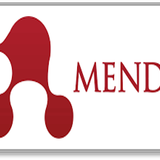Tax Aggressiveness, Fair Value Accounting, Debt Maturity: Does Integrated Reporting Matter?
DOI:
https://doi.org/10.24912/ja.v26i1.815Abstract
This study investigates the association between tax aggressiveness, fair value accounting and debt maturity and whether Integrated Reporting (IR) moderates those relationships. This study's methodology is a quantitative approach with multiple linear regression models and panel data. The sample employed in this study is manufacturing companies listed on the Indonesia Stock Exchange (IDX). The type of data used is secondary data sourced from financial statements and annual reports from 2016 to 2020. The sample selection using a purposive sampling method with the number of samples amounted to 595 firm-year observations. This study suggests that tax aggressiveness and fair value accounting have an inverse association with debt maturity. However, IR failed to weaken the negative impact of extensive fair value accounting on debt maturity. The Financial Services Authority (OJK) can consider this study to improve supervision and regulation for better creditor protection through the company's optimal debt maturity policy.
References
Adachi-Sato, M., and Vithessonthi, C. (2019). Corporate debt maturity and future firm performance volatility. International Review of Economics and Finance, 60, 216–237. https://doi.org/10.1016/j.iref.2018.11.001.
Adwan, S., Alhaj-Ismail, A., and Girardone, C. (2020). Fair value accounting and value relevance of equity book value and net income for European financial firms during the crisis. Journal of International Accounting, Auditing and Taxation, 39, 100320. https://doi.org/10.1016/j.intaccaudtax.2020.100320.
Alexander, D., and Blum, V. (2016). Ecological economics: A Luhmannian analysis of integrated reporting. Ecological Economics, 129, 241–251. https://doi.org/10.1016/j.ecolecon.2016.06.020.
Annisa, R. H., dan Taqwa, S. (2020). Pengaruh fair value accounting dan dewan komisaris terhadap earning management yang dimoderasi oleh peran syariah. Jurnal Eksplorasi Akuntansi, 2(1), 2280–2298. https://doi.org/10.24036/jea.v2i1.212.
Astuti, T. P., dan Aryani, Y. A. (2017). Tren penghindaran pajak perusahaan manufaktur di Indonesia yang terdaftar di BEI tahun 2001-2014. Jurnal Akuntansi, 20(3), 375–388. https://doi.org/10.24912/ja.v20i3.4.
Balakrishnan, K., Blouin, J. L., and Guay, W. R. (2019). Tax aggressiveness and corporate transparency. The Accounting Review, 94(1), 45–69. https://doi.org/10.2308/accr-52130.
Beck, C., Dumay, J., & Frost, G. (2017). In pursuit of a ‘single source of truth’: from threatened legitimacy to integrated reporting. Journal of Business Ethics, 141(1), 191–205. https://doi.org/10.1007/s10551-014-2423-1.
Benlemlih, M. (2017). Corporate social responsibility and firm debt maturity. Journal of Business Ethics, 144(3), 491–517. https://doi.org/10.1007/s10551-015-2856-1.
Bhimantara, G. R., dan Dinarjito, A. (2021). Pengaruh profitabilitas terhadap nilai perusahaan dengan moderasi pengungkapan elemen-elemen integrated reporting. E-Jurnal Akuntansi, 31(4), 996–1009. https://doi.org/10.24843/EJA.2021.v31.i04.p16.
Boubaker, S., Chourou, L., Haddar, M., and Hamza, T. (2019). Does employee welfare affect corporate debt maturity? European Management Journal, 37(5), 674–686. https://doi.org/10.1016/j.emj.2019.08.004.
Camilleri, M. A. (2018). Theoretical insights on integrated reporting: The inclusion of non-financial capitals in corporate disclosures. Corporate Communications, 23(4), 567–581. https://doi.org/10.1108/CCIJ-01-2018-0016.
Casino-Martínez, A., López-Gracia, J., Mestre-Barberá, R., and Peiró-Giménez, A. (2019). An agency approach to debt maturity of unlisted and listed firms in the European setting. European Management Journal, 37(3), 339–352. https://doi.org/10.1016/j.emj.2018.07.008.
Chariri, A. (2019). The patterns of integrated reporting: a comparative study of companies listed on the Johannesburg Stock Exchanges and Indonesia Stock Exchanges. Jurnal Reviu Akuntansi Dan Keuangan, 9(1), 1. https://doi.org/10.22219/jrak.v9i1.8248.
Chen, H., Xu, Y., & Yang, J. (2021). Systematic risk, debt maturity, and the term structure of credit spreads. Journal of Financial Economics, 139(3), 770–799. https://doi.org/10.1016/j.jfineco.2020.09.002.
Cooray, T., Senaratne, S., Gunarathne, N., Herath, R., and Samudrage, D. N. (2021). Adoption of integrated reporting in Sri Lanka: coverage and trend. Journal of Financial Reporting and Accounting, 19(5), 1–27. https://doi.org/10.1108/JFRA-04-2020-0116.
Cortesi, A., and Vena, L. (2019). Disclosure quality under integrated reporting: a value relevance approach. Journal of Cleaner Production, 220, 745–755. https://doi.org/10.1016/j.jclepro.2019.02.155.
Cortina Tatiana Didier Sergio L Schmukler, J. J., Kraay, A., Jeanne, O., Soledad Martínez Pería, M., Mayer, C., Pagano, M., Polo, A., Presbitero, A., Popov, A., Reinhart, C., Rudolph, H., Servén, L., Singh, N., and Tressel, T. (2018). Corporate borrowing and debt maturity: market access and crisis effects. https://papers.ssrn.com/sol3/papers.cfm?abstract_id=2849115.
D. Adhariani, and Villiers, C. de. (2018). Integrated reporting: perspectives of corporate report preparers and other stakeholders. Sustainability Accounting, Management and Policy Journal, 10(1), 126–156.
de Villiers, C., Rinaldi, L., & Unerman, J. (2014). Integrated reporting: Insights, gaps and an agenda for future research. Accounting, Auditing and Accountability Journal, 27(7), 1042–1067. https://doi.org/10.1108/AAAJ-06-2014-1736.
Deegan, C. M. (2019). Legitimacy theory: Despite its enduring popularity and contribution, time is right for a necessary makeover. Accounting, Auditing and Accountability Journal, 32(8), 2307–2329. https://doi.org/10.1108/AAAJ-08-2018-3638.
Della Seta, M., Morellec, E., and Zucchi, F. (2020). Short-term debt and incentives for risk-taking. Journal of Financial Economics, 137(1), 179–203. https://doi.org/10.1016/j.jfineco.2019.07.008.
Deloitte. (2015). A Directors ’ Guide to Integrated Reporting Contents. A Directors ’ Guide to Integrated Reporting Contents.
Di Vaio, A., Syriopoulos, T., Alvino, F., and Palladino, R. (2020). “Integrated thinking and reporting” towards sustainable business models: a concise bibliometric analysis. Meditari Accountancy Research, 29(4).
Do, T. K. (2020). Financial statement comparability and corporate debt maturity. Finance Research Letters, March, 101693. https://doi.org/10.1016/j.frl.2020.101693.
Dosinta, N. F., dan Brata, H. (2020). Politik penamaan dalam pelaporan korporat pascaimplementasi integrated reporting. Jurnal Akuntansi Multiparadigma, 11(1), 138–158. https://doi.org/10.21776/ub.jamal.2020.11.1.09.
Dvorkin, M., Sánchez, J. M., Sapriza, H., and Yurdagul, E. (2020). News, sovereign debt maturity, and default risk. Journal of International Economics, 126. https://doi.org/10.1016/j.jinteco.2020.103352.
Eccles, R. G., and Spiesshofer, B. (2016). Integrated reporting for a re-imagined capitalism. Re-Imagining Capitalism, 207–225. https://doi.org/10.1093/acprof:oso/9780198785453.003.0015.
Edwards, A., Schwab, C., and Shevlin, T. (2016). Financial constraints and cash tax savings. The Accounting Review, 91(3), 859–881. https://doi.org/10.2308/accr-51282.
Fauzie, S., Sugeng, W., and Soeparno, I. (2018). The Relevance of the fair value of securities investment in predicting the income and stock prices of the banking industry in Indonesia. Advances in Social Science, Education and Humanities Research, 292(Agc), 588–594. https://doi.org/10.2991/agc-18.2019.88.
Fernando, K., Dharmawati, R., Sriani, D., Shauki, E. R., & Diyanty, V. (2018). Does integrated reporting approach enhance the value relevance of accounting information?: evidence from Asian Firms. Advances in Economics, Business and Management Research, 55, 112–117. https://doi.org/10.2991/iac-17.2018.20.
Firmansyah, A., and Bayuaji, R. (2019). Financial constraints, investment opportunity set, financial reporting aggressiveness, tax aggressiveness: Evidence from Indonesia manufacturing companies. Academy of Accounting and Financial Studies Journal, 23(5).
Frank, M. M., Lynch, L. J., and Rego, S. O. (2009). Tax reporting aggressiveness and its relation to aggressive financial reporting. The Accounting Review, 84(2), 467–496.
García-Sánchez, I. M., and Noguera-Gámez, L. (2018). Institutional investor protection pressures versus firm incentives in the disclosure of integrated reporting. Australian Accounting Review, 28(2), 199–219. https://doi.org/10.1111/auar.12172.
Gerwanski, J. (2020). Does it pay off? Integrated reporting and cost of debt: European evidence. Corporate Social Responsibility and Environmental Management, 27(5), 2299–2319. https://doi.org/10.1002/csr.1965.
Ghanbari, M., Hayati, E., Taheri, M., and Kaki, M. (2018). Evaluating the impact of fair value accounting on debt structure and financial reporting of listed companies in Tehran Stock Exchange. Journal of Advanced Pharmacy Education & Research, 176–180.
Grassmann, M. (2021). The relationship between corporate social responsibility expenditures and firm value: The moderating role of integrated reporting. Journal of Cleaner Production, 285, 124840. https://doi.org/10.1016/j.jclepro.2020.124840.
Haji, A. A., and Anifowose, M. (2016). The trend of integrated reporting practice in South Africa: ceremonial or substantive? Sustainability Accounting, Management and Policy Journal, 7(2), 190–224. https://doi.org/10.1108/SAMPJ-11-2015-0106.
Hasan, I., Hoi, C. K., Wu, Q., and Zhang, H. (2017). Social capital and debt contracting: Evidence from bank loans and public bonds. Journal of Financial and Quantitative Analysis, 52(3), 1017–1047. https://doi.org/10.1017/S0022109017000205.
Herath, and Gunarathne. (2016). Assessing the gap between integrated reporting and current integrated corporate reporting practice: a proposed checklist. https://doi.org/10.13140/RG.2.2.30407.91048.
Huang, Q., Jiang, F., and Wu, S. Y. (Jennifer). (2018). Does short-maturity debt discipline managers? Evidence from cash-rich firms’ acquisition decisions. Journal of Corporate Finance, 53, 133–154. https://doi.org/10.1016/j.jcorpfin.2018.10.001.
IIRC. (2013). The international integrated reporting framework. https://www.integratedreporting.org/resource/international-ir-framework/.
Jayasiri, N. K. (2020). Integrated reporting in Sri Lanka: An exploratory study [University of Otago]. https://ourarchive.otago.ac.nz/handle/10523/10502.
Jensen, M. C., and Meckling, W. H. (1976). Theory of the firm: Managerial behavior, agency costs and ownership structure. Journal of Financial Economics, 3(4), 305–360. https://doi.org/10.1016/0304-405X(76)90026-X.
Jordan, C. O. F. (2018). The determinants of debt maturity: the case of Jordan. Academy of Accounting and Financial Studies Journal, 22(1), 1–13.
Joshi, P. L. (2019). Integrated reporting: current trends in financial reporting. International Journal of Accounting Research, 06(02), 2–5. https://doi.org/10.35248/2472-114x.18.6.177.
Jungherr, J., & Schott, I. (2020). Optimal debt maturity and firm investment. Review of Economic Dynamics, 1, 1–23. https://doi.org/10.1016/j.red.2020.10.005.
Kashefi Pour, E., and Lasfer, M. (2019). Taxes, governance, and debt maturity structure: International evidence. Journal of International Financial Markets, Institutions and Money, 58, 136–161. https://doi.org/10.1016/j.intfin.2018.09.011.
Kempers, W. (2017). The relationship between integrated reporting and corporate tax avoidance. In Amsterdam Business School. https://scripties.uba.uva.nl/search?id=643568.
Kubick, T. R., and Lockhart, G. B. (2017). Corporate tax aggressiveness and the maturity structure of debt. Advances in Accounting, 36, 50–57. https://doi.org/10.1016/j.adiac.2016.10.001.
Kurniawan, B., Refianto, dan Fernando, K. (2020). Penerapan integrated reporting dan kaitannya dengan informasi akuntansi: studi pada perusahaan di kawasan Asia yang terdaftar pada the international integrated reporting council. Jurnal Penelitian Akuntansi, 1(2), 99–114. https://doi.org/10.19166/jpa.v1i2.2773.
Kurniawati, L., dan Arifin, H. (2017). Agresivitas pajak dan maturitas utang. Jurnal Pajak Indonesia, 1(1), 92–106. https://doi.org/10.31092/jpi.v1i1.176.
Kustiani, N. A. (2016). Penerapan elemen-elemen integrated reporting pada perusahaan yang terdaftar di Bursa Efek Indonesia. Info Artha, 3, 44–61. https://doi.org/10.31092/jia.v3i0.38.
Lai, A., Melloni, G., and Stacchezzini, R. (2016). Corporate sustainable development: is “integrated reporting” a legitimation strategy? Business Strategy and the Environment, 25(3), 165–177. https://doi.org/10.1002/bse.1863.
Landau, A., Rochell, J., Klein, C., and Zwergel, B. (2020). Integrated reporting of environmental, social, and governance and financial data: Does the market value integrated reports? Business Strategy and the Environment, 29(4), 1750–1763. https://doi.org/10.1002/bse.2467.
Latifatul, A., Junaidi, J., dan Hariri, H. (2021). Pengaruh fair value accounting, good corporate governance terhadap earning management (studi empiris pada perusahaan manufaktur yang terdaftar di BEI tahun 2017 - 2019). E-JRA FEB Universitas Islam Malang, 10(02), 60–74.
Magnan, M., Menini, A., and Parbonetti, A. (2015). Fair value accounting: information or confusion for financial markets? Review of Accounting Studies, 20(1), 559–591. https://doi.org/10.1007/s11142-014-9306-7.
Magnan, M., Wang, H., and Yaqi Shi. (2017). Fair value accounting and the cost of debt. https://cirano.qc.ca/files/publications/2016s-32.pdf.
Maniora, J. (2017). Is Integrated Reporting Really the Superior Mechanism for the Integration of Ethics into the Core Business Model? An Empirical Analysisintegrated reporting really the superior mechanism for the integration of ethics into the core business model? an empiri. Journal of Business Ethics, 140(4), 755–786. https://doi.org/10.1007/s10551-015-2874-z.
Manuelli, R. E. (2019). What determines debt maturity? Federal Reserve Bank of St. Louis Review, 101(3), 155–176. https://doi.org/10.20955/r.101.155-76.
Mårtensson, K., and Westerberg, K. (2016). Corporate environmental strategies towards sustainable development. Business Strategy and the Environment, 25(1), 1–9.
Masri, I., and Martani, D. (2014). Tax avoidance behaviour towards the cost of debt. International Journal of Trade and Global Markets, 7(3), 235–249. https://doi.org/10.1504/IJTGM.2014.064911.
Maurice, Y., Mard, Y., and Séverin, É. (2020). The effect of earnings management on debt maturity: An international study. Comptabilite Controle Audit, 26(2), 125–156. https://doi.org/10.3917/cca.262.0125.
Mervelskemper, L., and Streit, D. (2017). Enhancing market valuation of ESG performance: is integrated reporting keeping its promise? Business Strategy and the Environment, 26(4), 536–549. https://doi.org/10.1002/bse.1935.
Modigliani, F., and Miller, M. H. (1958). The cost of capital, corporation finance and the theory of investmient. The American Economic Review, 48(3), 261–297.
Modigliani, F., and Miller, M. H. (1963). Corporate income taxes and the cost of capital: a correction. The American Economic Review, 53(3), 433–443.
Murti, N. W., and Suyanto, S. (2017). The relevance of fair value concept compared to historical costs in Indonesia. In Proceedings Of Indonesia Focus. https://www.indonesiafocus.net/index.php/PIF/article/view/18.
Muttakin, M. B., Mihret, D., Lemma, T. T., and Khan, A. (2020). Integrated reporting, financial reporting quality and cost of debt. International Journal of Accounting and Information Management, 28(3), 517–534. https://doi.org/10.1108/IJAIM-10-2019-0124.
Myers, S. C. (1977). Determinants of corporate borrowing. Journal of Financial Economics, 5(2), 147–175. https://doi.org/10.1016/0304-405X(77)90015-0.
Myers, S. C. (1984). Finance theory and financial strategy. Interfaces, 14(1), 126–137.
Navarrete-Oyarce, J., Gallegos, J. A., Moraga-Flores, H., and Gallizo, J. L. (2021). Integrated reporting as an academic research concept in the area of business. Sustainability (Switzerland), 13(14), 17–19. https://doi.org/10.3390/su13147741.
Naynar, N. R., Ram, A. J., and Maroun, W. (2018). Expectation gap between preparers and stakeholders in integrated reporting. Meditari Accountancy Research, 26(2), 241–262. https://doi.org/10.1108/MEDAR-12-2017-0249.
Nur Apandi, R. N. (2017). Pengaruh penerapan fair value non current asset dan manajemen pajak atas asset perusahaan terhadap fee audit. Jurnal Riset Akuntansi Dan Keuangan, 4(3), 1229–1242. https://doi.org/10.17509/jrak.v4i3.5839.
Obeng, V. A., Ahmed, K., and Miglani, S. (2020). Integrated reporting and earnings quality: The moderating effect of agency costs. Pacific Basin Finance Journal, 60(February), 101285. https://doi.org/10.1016/j.pacfin.2020.101285.
Orman, C., and Köksal, B. (2017). Debt maturity across firm types: Evidence from a major developing economy. Emerging Markets Review, 30, 169–199. https://doi.org/10.1016/j.ememar.2016.12.001.
Palasari, D. (2018). Pengaruh penerapan fair value accounting terhadap indikasi manipulasi laporan keuangan. Universitas Negeri Padang, 6(2), 1–28.
Platikanova, P. (2017). Debt Maturity and Tax Avoidance. European Accounting Review, 26(1), 97–124. https://doi.org/10.1080/09638180.2015.1106329.
Rachmawati, N. A., and Martani, D. (2014). Pengaruh large positive abnormal book-tax differences terhadap persistensi laba. Jurnal Akuntansi Dan Keuangan Indonesia, 11(2), 120–137. https://doi.org/10.21002/jaki.2014.07.
Rey, A., Tuccillo, D., and Roberto, F. (2020). Earnings management and debt maturity: Evidence from Italy. Corporate Ownership and Control, 17(3), 179–186. https://doi.org/10.22495/cocv17i3art14.
Saksessia, D., and Firmansyah, A. (2020). The role of corporate governance on earnings quality from positive accounting theory framework. International Journal of Scientific and Technology Research, 9(1), 808–820.
Smith Jr, C. W., & Warner, J. B. (1979). On financial contracting: An analysis of bond covenants. Journal of Financial Economics, 7(2), 117–161. https://doi.org/10.1016/0304-405X(79)90011-4.
Stacchezzini, R., Melloni, G., and Lai, A. (2016). Sustainability management and reporting: the role of integrated reporting for communicating corporate sustainability management. Journal of Cleaner Production, 136, 102–110. https://doi.org/10.1016/j.jclepro.2016.01.109.
Tesalonika, F. (2020). Kesiapan perusahaan untuk menerapkan pelaporan terintegrasi: penilaian laporan keberlanjutan perusahaan berdasarkan rerangka konseptual pelaporan terintegrasi [Widya Mandala Catholic University Surabaya]. https://repository.globethics.net/handle/20.500.12424/3869456.
Tlili, M., Othman, H. Ben, and Hussainey, K. (2019). Does integrated reporting enhance the value relevance of organizational capital? Evidence from the South African context. Journal of Intellectual Capital, 20(5), 642–661. https://doi.org/10.1108/JIC-02-2019-0034.
VanKhanh, V. T., and Hung, D. N. (2020). Impact of earnings quality on the debt maturity: The case of Vietnam. Asian Economic and Financial Review, 10(1), 1–12. https://doi.org/10.18488/journal.aefr.2020.101.1.12.
Venter, E. R., Stiglingh, M., and Smit, A. R. (2017). Integrated thinking and the transparency of tax disclosures in the corporate reports of firms. Journal of International Financial Management and Accounting, 28(3), 394–427. https://doi.org/10.1111/jifm.12064.
Vitolla, F., Raimo, N., and Rubino, M. (2019). Appreciations, criticisms, determinants, and effects of integrated reporting: A systematic literature review. Corporate Social Responsibility and Environmental Management, 26(2), 518–528. https://doi.org/10.1002/csr.1734.
Vourvachis, P., Woodward, T., Woodward, D. G., and Patten, D. M. (2016). CSR disclosure in response to major airline accidents: a legitimacy-based exploration. Sustainability Accounting, Management and Policy Journal, 7(1), 26–43. https://doi.org/10.1108/SAMPJ-12-2014-0080.
Wang, C. W., Chiu, W. C., and King, T. H. D. (2020). Debt maturity and the cost of bank loans. Journal of Banking and Finance, 112, 1–22. https://doi.org/10.1016/j.jbankfin.2017.10.008.
Wang, H., & Zhang, J. (2017). Fair value accounting and corporate debt structure. Advances in Accounting, 37, 46–57. https://doi.org/10.1016/j.adiac.2017.02.002.
Wu, J. (2017). An empirical study on value relevance of fair value : based on the data of financial industry and manufacturing industry in China. https://doi.org/10.20944/preprints201712.0055.v1.
Xie, B. (2016). Does fair value accounting exacerbate the procyclicality of bank lending? Journal of Accounting Research, 54(1), 235–274. https://doi.org/10.1111/1475-679X.12103.
Xu, X., and Li, J. (2020). Asymmetric impacts of the policy and development of green credit on the debt financing cost and maturity of different types of enterprises in China. Journal of Cleaner Production, 264, 121574. https://doi.org/10.1016/j.jclepro.2020.121574.
Zaro, E. S., Flores., Murcia, F. D.-R., Fasan, M., and Mio, C. (2020). The effect of the voluntary adoption of integrated reporting on the cost of equity: enforcement perspective. In XX USP International Conference in Accounting. https://congressousp.fipecafi.org/anais/20UspInternational/ArtigosDownload/2554.pdf.
Downloads
Published
How to Cite
Issue
Section
License

This work is licensed under a Creative Commons Attribution-NonCommercial-ShareAlike 4.0 International License.
This journal provides immediate open access to its content on the principle that making research freely available to the public supports a greater global exchange of knowledge.

This work is licensed under a Creative Commons Attribution-NonCommercial-ShareAlike 4.0 International License



















